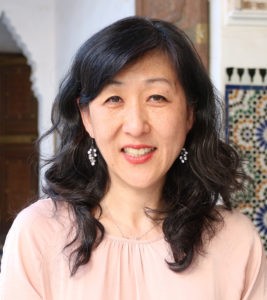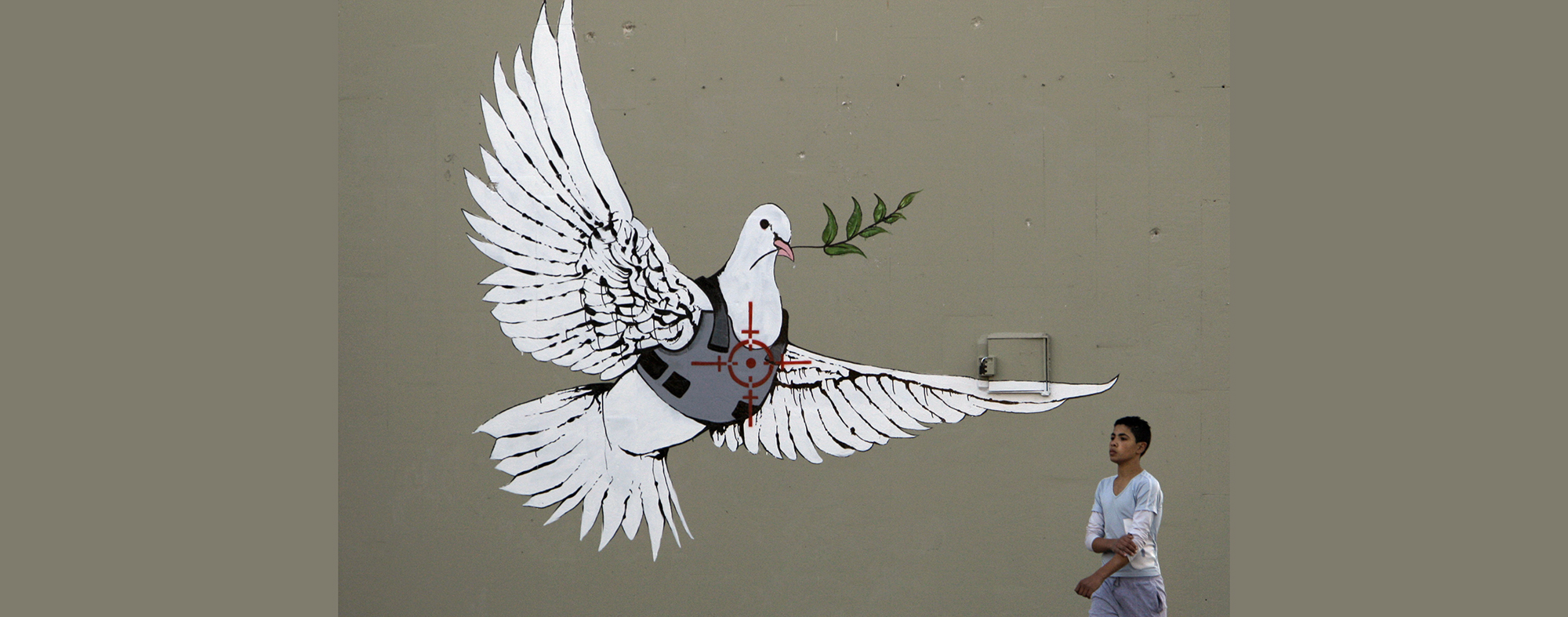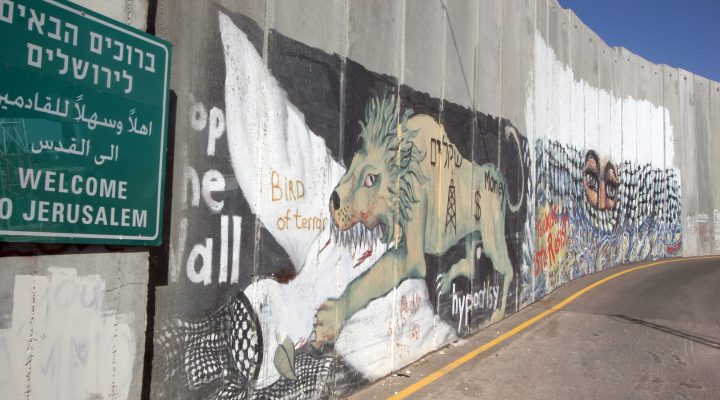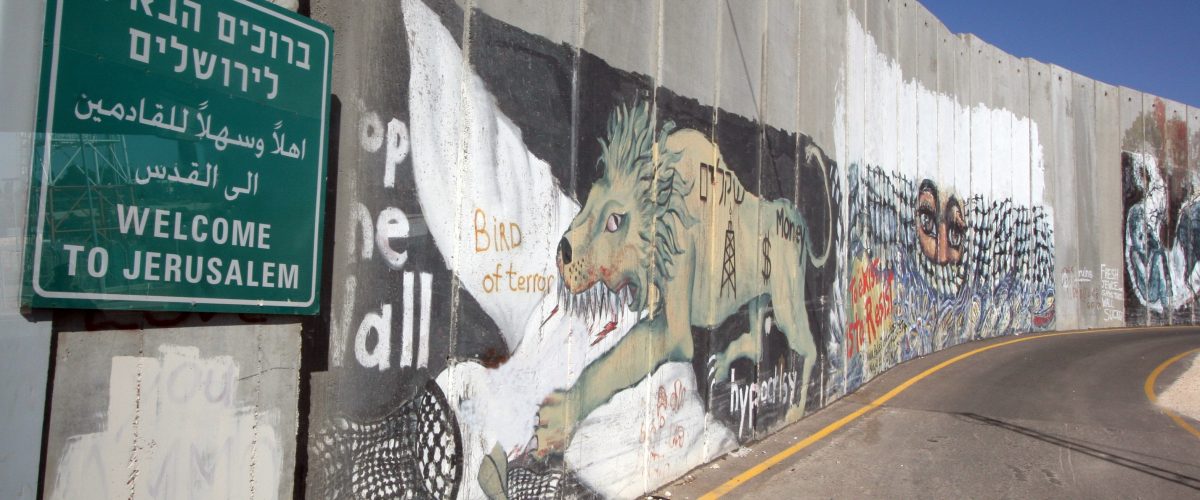There are many famous walls from our world history.
We are familiar with the Great Wall of China, built 770 to 476 BCE. It was a fortification built across the historical northern borders of ancient Chinese states and imperial China to protect themselves against various groups.
This past summer, I took students to Korea, and we saw some of the remaining gates of the Seoul City Wall that was built in 1396, during the Joseon Dynasty (1392-1897). It was built like a fence to protect the people living within the wall.

Grace Ji-Sun Kim
We had a family trip to Quebec City this summer, and we visited the city’s wall, which is the third one since Quebec was founded. This fortification wall surrounds Old Quebec and is the only fortified city north of Mexico.
These walls around these cities were to protect from invasion and attacks.
There also are walls put up to create borders and keep people out.
The DMZ continues to divide North and South Korea. This border barrier separates families, neighbors and friends. People visit the DMZ and leave notes of freedom, love and unity along the border barrier. It is the imperialism of superpowers that have divided Korea and maintains its division.
I have taken seminary students to the Mexican and American border in Nogales to see walls that prevent people from coming into the United States. Walls that are heavily militarized, guarded and cost astronomical sums of money.
Most recently, I visited Bethlehem and saw with my own eyes the wall there, which is often referred to as the Separation Barrier or Apartheid Wall, and which cuts Bethlehem off from Jerusalem to the north, and also to the rest of Israel. Israel built the wall in 2002 for security reasons, but Palestinians see it as creating racial segregation and apartheid.

A Palestinian youth walks past the painting of a dove of peace wearing a flak-jacket which is widely attributed to be by British artist Banksy on a wall in the West Bank town of Bethlehem, Wednesday, Dec. 5, 2007. The illusive Banksy is thought to have created a number of works on walls in the biblical West Bank town as part of a project the artist began in 2005, including a number on Israel’s separation barrier. (AP Photo/Kevin Frayer)
The illusive street artist Banksy drew on this wall for the first time in 2005. Some of the artwork on the wall speaks to resistance, anger, peace, hope and justice from the ongoing Israeli occupation. People who were able to easily access cities such as Jerusalem, Ramallah and cities in the northern West Bank now face restrictions in movement and need permits issued by the Israeli military. In most instances, they must pass through Israeli-controlled checkpoints.
I started writing this piece before the hostilities began on Oct 7. Already, people are choosing sides as if this is a game. Christianity is so deeply embedded and rooted in dualism that it pits one against another. Dualism separates categories, concepts and ideas into two distinct camps. For example, we have male and female (or masculine and feminine), spirit and body, heaven and earth. This dualism is in play right now and pitting us to choose Palestine or Israel. In such a world, if anyone shows support for Palestine or for the Palestinians, then they must be antisemitic.
“This dualistic narrative must be destroyed.”
This dualistic narrative must be destroyed. We need room to be both/and. Our crisis today cannot be easily discussed as if it is an either/or.
As Christians, we must stand up for justice, the oppressed, the occupied, the poor and the colonized. In such a world, fighting for justice does not mean we must or should hate another group.
However, lives lost is against any morals we carry. Whether Israeli or Palestinian. We must look at some of the root causes of why this is happening. If we just look at history, we can understand that settler colonialism is an injustice. We have seen settler colonialism in other parts of the world and even right here in North America. White European settlers came into North America and committed genocide in the name of God under the notion of Manifest Destiny.
Manifest Destiny is the idea that white Americans are divinely ordained by God to settle in North America at all costs. This kind of thinking cost the lives of Native Americans as well as their rich, beautiful culture, history and spirituality. It led to the extermination of Native Americans, where 98% were murdered.
If history speaks to our future, this is the road Palestinians are on. Gaza is a densely populated strip of land, with more than 2 million people, where half the citizens are children. Human rights organizations and Prime Minister David Cameron of Britain in 2010 called Gaza “an open-air prison.” Now, with Israel’s massive bombing campaign from the air, and the cutting off of water, electricity, medicine and electrical power to Gaza, and with Palestinians having no way out due to the Gaza-Israel barrier, often called the Iron Wall, there will now be more deaths — a total genocide.
“Settler colonialism is never right.”
Settler colonialism is never right. History has shown what happens to the occupied. Palestinians living under occupation are resisting, as they want to be seen as equal human beings and not “children of a lesser God” (Husam Zomlot, ambassador, head of Palestinian mission to the UK).
I wrote my book, Invisible to show how Asian Americans are made invisible in North America. Our issues of racism, injustice and xenophobia are often ignored or downplayed by society. Invisibility happens to other groups of different ethnicities, sexualities and identities. It is also happening to the Palestinians as their desire for liberty, humanity, dignity and life is being and has been ignored by the West.
We have witnessed walls coming down. We know the Berlin Wall came down practically overnight and brought families back together.
Humanity can be better. Humanity can do better. We can create peace and work for justice in the world. In Scripture we find Jesus saying, “I tell you, … if they keep quiet, the stones will cry out.”
Grace Ji-Sun Kim serves as professor of theology at Earlham School of Religion in Richmond, Ind., and earned a Ph.D. from the University of Toronto. She is an ordained minister in the Presbyterian Church (USA) and the author or editor of 22 books. She is the host of Madang podcast on Christian Century.
Related articles:
‘I’m a Palestinian American Christian, and I don’t hear my story in any of the narratives’ | Opinion by Ghassan J. Tarazi
SBC ethics agency publishes ‘Evangelical Statement in Support of Israel’
Worldwide communion invited to Thursday Ecumenical Service of Lament over Israel and Palestine
‘Two-state solution’ was deemed less likely even before the current war between Israel and Hamas
My heart and my mind are in conflict about Israel and Hamas | Analysis by Rodney Kennedy
Violence begets violence: Hamas’ Pyrrhic victory | Opinion by Raouf J. Halaby
Here are some ways to listen to Palestinian Christians | Analysis by Rick Pidcock
In this war, there are no ‘good guys’ | Analysis by Mark Wingfield


